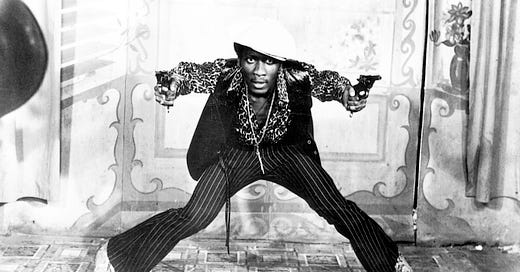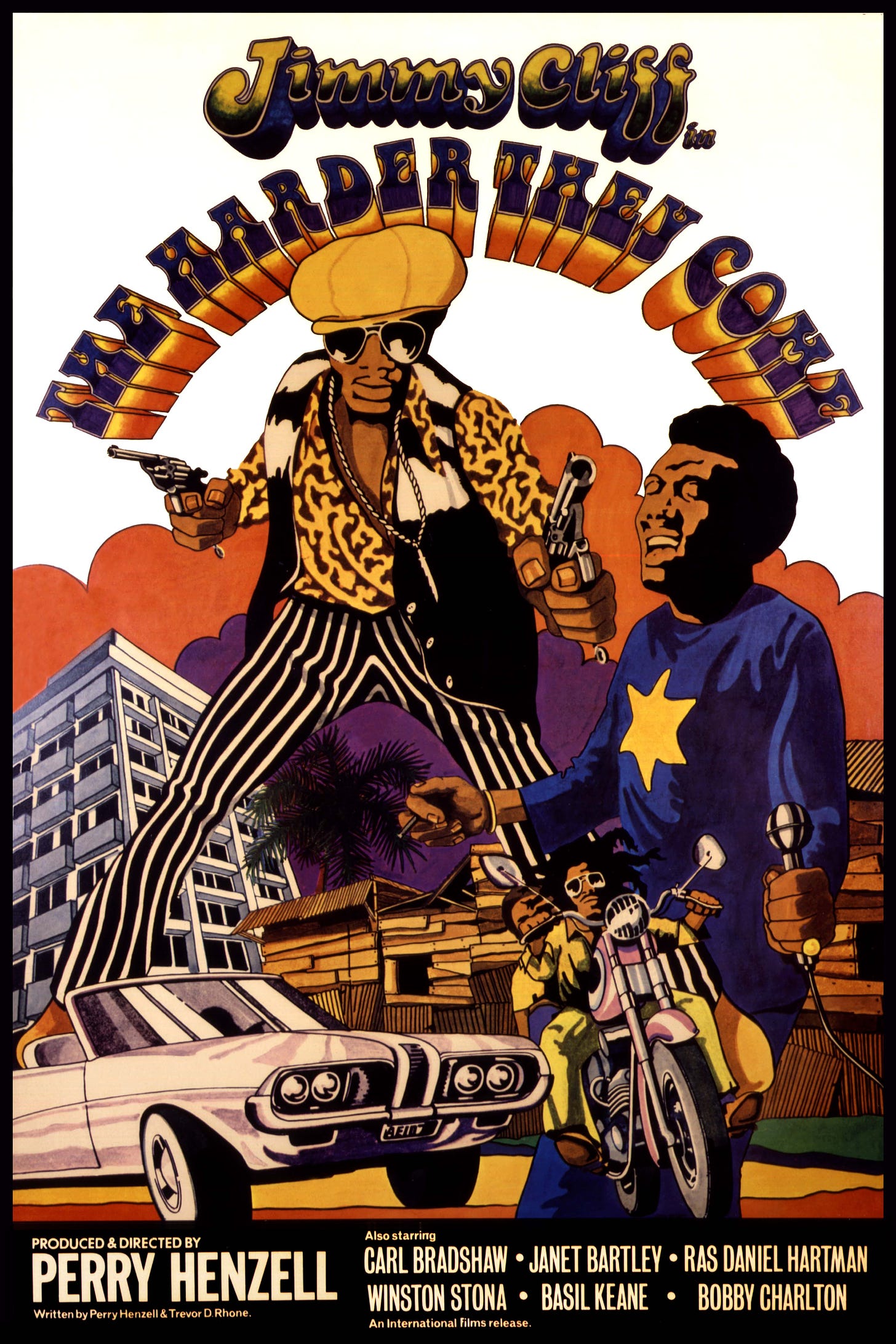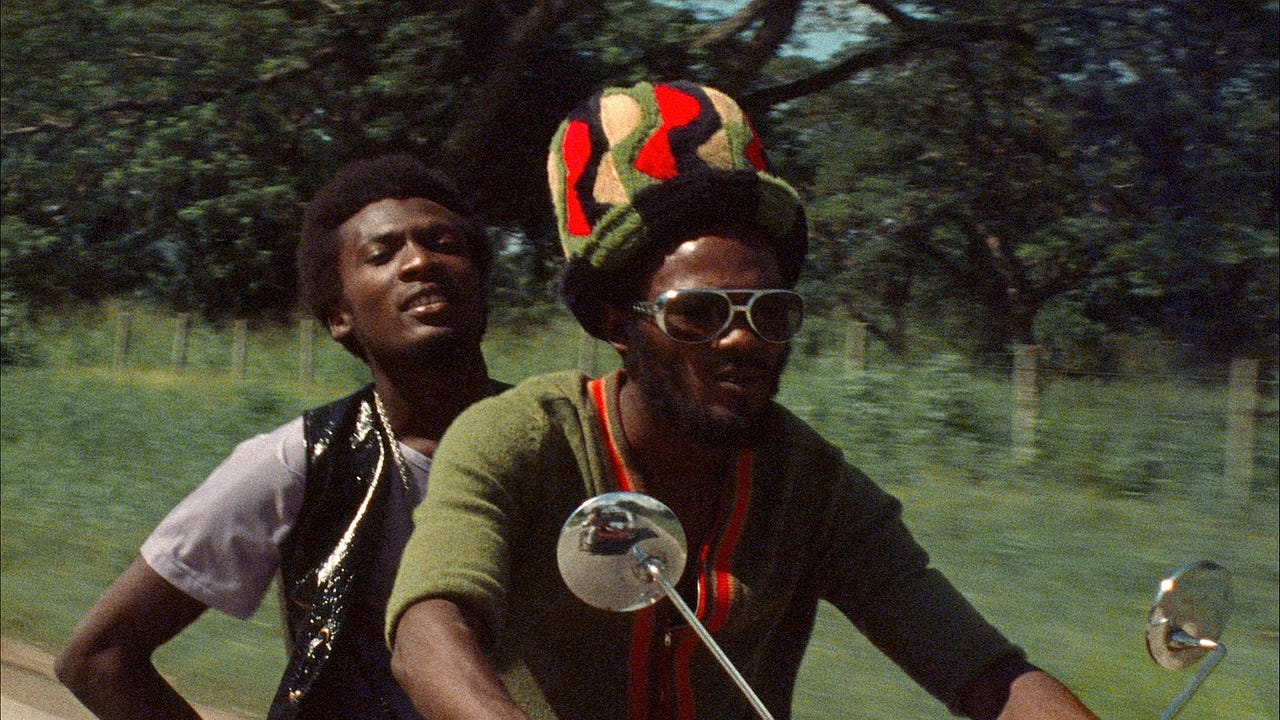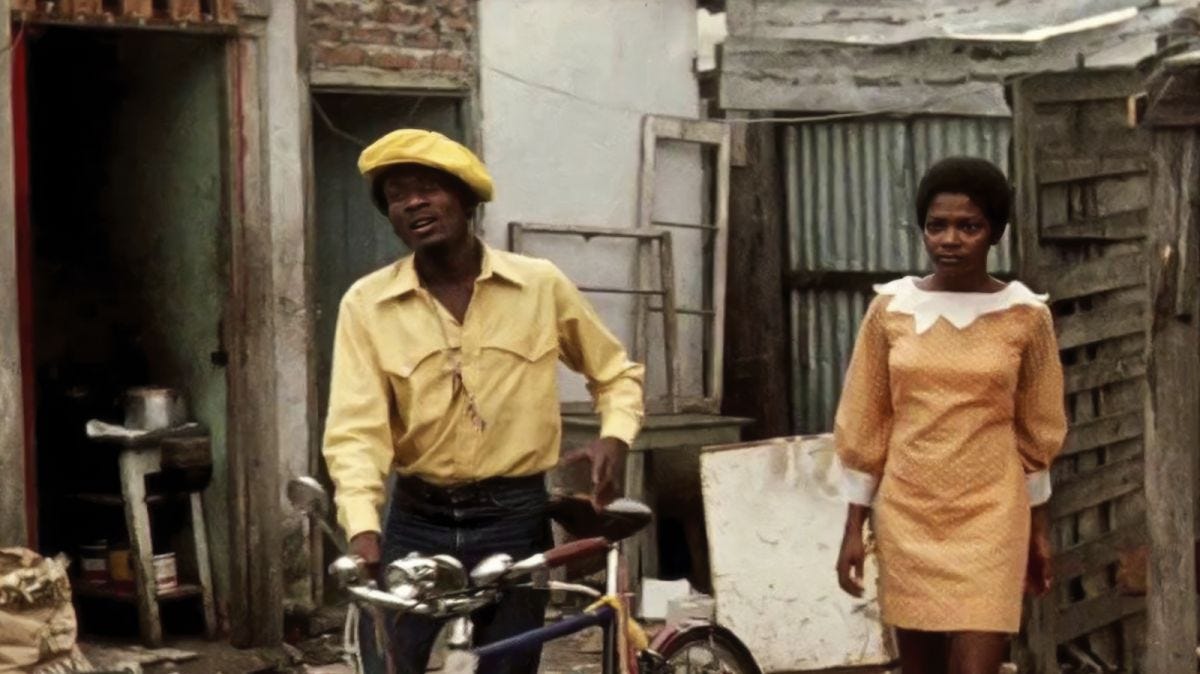Directed by Perry Henzell
Jamaica, 1977
The ReidsonFilm Holiday Version
You can get it if you really want…
And in The Harder They Come country boy turned urban outlaw Ivan Martin really, really wants it. Jamaica’s first full-length feature film, The Harder They Come, is probably best known for its iconic soundtrack – featuring Jimmy Cliff (playing the lead here), Desmond Decker, and Toots & The Maytals – but writer-director Perry Henzell serves up a film of verve and excitement, with a hard-core political edge. This is the Jamaica of slums, corrupt police, and the ganja trade. No golden beaches and not a hint of Ian Fleming. I can’t imagine the Jamaica Tourist Board would have been too happy with it.
The narrative is a fusion of showbiz biopic and spaghetti western, a rags to riches story in which the riches remain perpetually out of reach. After his grandmother’s death, Ivan arrives in Kingston looking for work, but more importantly aiming to cut a record and become a star. Brimming with a swaggering self-confidence he is quickly hustled out of his clothes and cash by the city sharps. Ivan’s character is inspired by a real life criminal from the 1940s, Rhyging, ‘the original rude boy’ who despite a string of robberies and murders became a folk hero.
Updated to the 1970s, in this version Ivan finds work in a repair shop owned by a tyrannical, tub-thumping preacher where he takes more than a liking to the preacher’s young, attractive ward, Elsa (Janet Bartley). Unsurprisingly, the preacher is none too keen to have Elsa leave his predatory clutches. When Ivan takes her for a ride on his bicycle along a causeway by the sea – in a beautiful tracking shot reminiscent of Paul Newman as Butch Cassidy – you know that trouble lies ahead. A knife fight breaks out and Ivan ends up in trouble with the law. His punishment? A grisly eight lashes with a tamarind switch.
Well, that’s as much as Ivan can take and after a brief flirtation with ganja-dealing he sets off on a crime spree ripping off drug dealers and cops alike. At the same time, he manages to record the eponymous single, although in a bitter reflection of Cliff’s own experience despite the record’s success Ivan gets a measly one-off payment of $20. Nonetheless he soon finds top of the charts as well as Jamaica’s ‘Most Wanted’ list.
Ahead of the game when it comes to self-publicity Ivan sends photos of himself to the newspapers, a pistol in each hand and a gold star shining from his T-shirt. Willing to fan the flames of his notoriety:
Elsa: They say that you killed a policeman.
Ivan: I killed three.
The Harder They Come has a grainy film stock and the elusive, elliptical editing gives the film a deceptively raw edge. Fast-paced, handheld camera shots contrast with fleeting compositions of glamorous couples at poolside, reflecting Perry Henzell’s background in advertising. The cinematographer, Franklyn St. Juste, later reported that he hadn’t seen a script: “I really didn’t know what was happening — and what was going to happen from one scene to the next or from one setup to the next.” That spontaneity give the film a sense of urgency.
Elsa: Ivan, you're a dreamer.
Ivan Martin: Me? Dreamer? Who's a bigger dreamer than you? Always talking about milk and honey in the sky. Well, no milk and honey in the sky! No, not for you, not for me. It's right down here, and I want mine now, tonight!
In a brief interlude Ivan goes to a Kingston cinema with a friend to watch a western. His friend tells him:
Starboi can’t die till the last reel.
That is the case for Ivan himself – his daring escapades and defiant resistance eventually catches up with him. After repeatedly outwitting – and picking off – a squad of cartoonish Keystone Cops the army called in and, back yet again to Butch Cassidy and the Sundance Kid, Ivan goes out all guns blazing.
And of course there is that soundtrack, the pulsating heartbeat of the film, from the defiant optimism of You Can Get It If You Really Want to the gritty realism of The Harder They Come. Pulp Fiction? You can keep it…
Reids’ Results (out of 100)
C - 77
T - 79
N - 77
S - 83
Thank you for reading Reids on Film. If you enjoyed our review please share with a friend and do leave a comment.








Long time since I’ve watched it but you summarized it brilliantly. Soundtrack, as you say, is wonderful.
Jimmy Cliff!